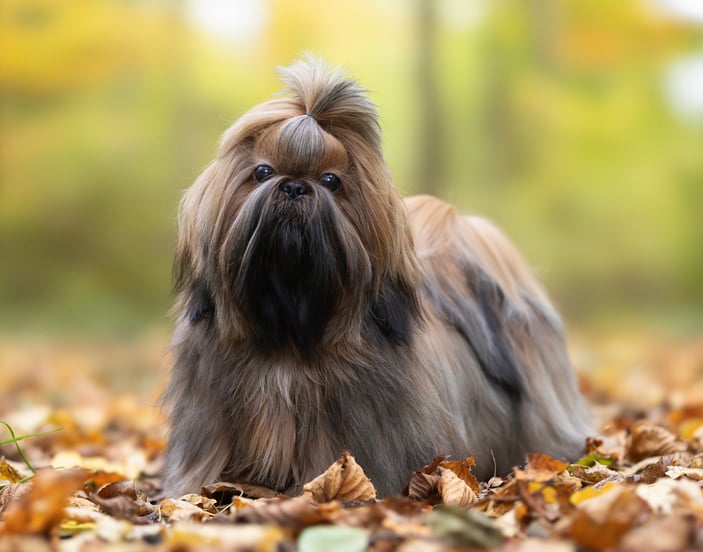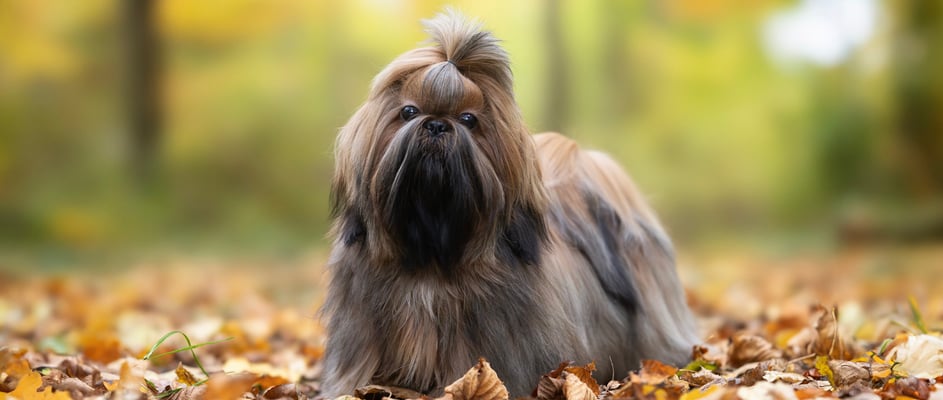The guide to owning a Lhasa Apso.
Want to know everything there is to know about finding the right dog for you? Submit your email below, and we’ll send you a one-stop guide to help you on your pet-ownership journey.
Jump to:
Stats at a glance.
A history of Lhasa Apsos.
Meet the Lhasa Apso , a small yet regal dog breed originating from the ancient city of Lhasa in Tibet.
Records suggest the Lhasa Apso is a thousand-year-old companion valued for its role as a loyal watchdog in palaces and monasteries isolated high in the Himalayas.
Monks treasured these dogs for their keen hearing and fearless bark, which both welcomed friends and warned off would-be intruders.
Over time, their reputation as companions spread beyond Tibet, and they were even given as gifts to visiting dignitaries.
Today, the Lhasa Apso dog breed remains a beloved companion dog, admired for its confident demeanour and luxurious long coat.
If you’d like to see how other smaller breeds compare, have a look at our guide to the top 10 small dog breeds.
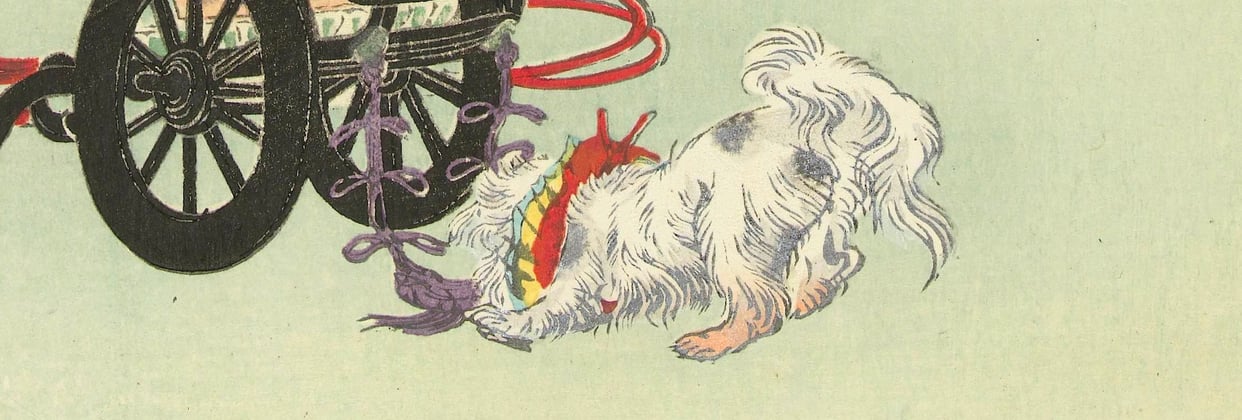

How much is a Lhasa Apso puppy (UK)?
The cost of Lhasa Apso puppies in the UK can range anywhere from £500 to £1,500, depending on factors like breeder reputation, location, and pedigree.
Before you get a dog, we recommend asking lots of questions, meeting the puppy’s parents, and requesting health certificates for conditions such as progressive retinal atrophy.
A responsible dog breeder will also ask about your home environment and lifestyle to ensure every Lhasa Apso finds the perfect family.
For a closer look at top breeds with famously long ears and luscious coats, visit our blog post "Dogs With Long Ears."
Colours and coat types.
Lhasa Apsos come in a delightful variety, often featuring gold, cream, black, or white coats. Some even showcase a blend of colours.
Thanks to centuries of selective breeding, these majestic little dogs sport that signature, floor-length coat.
Long coat: Their fur grows thick and straight, requiring frequent brushing to prevent knots.
Variety of colours: You’ll find a wide range from deep black to honey gold with shades of brown, grey, and even white.
That irresistibly silky coat makes them quite eye-catching but does mean they need regular grooming.





Size and weight.
A Lhasa Apso typically stands 25-28cm at the shoulder, weighing around 5-8 kg. While they’re considered a small breed, they’re actually quite sturdy.
Just as with other small breeds, a proper balance of nutrition and exercise is essential to keep them healthy and maintain muscle tone.
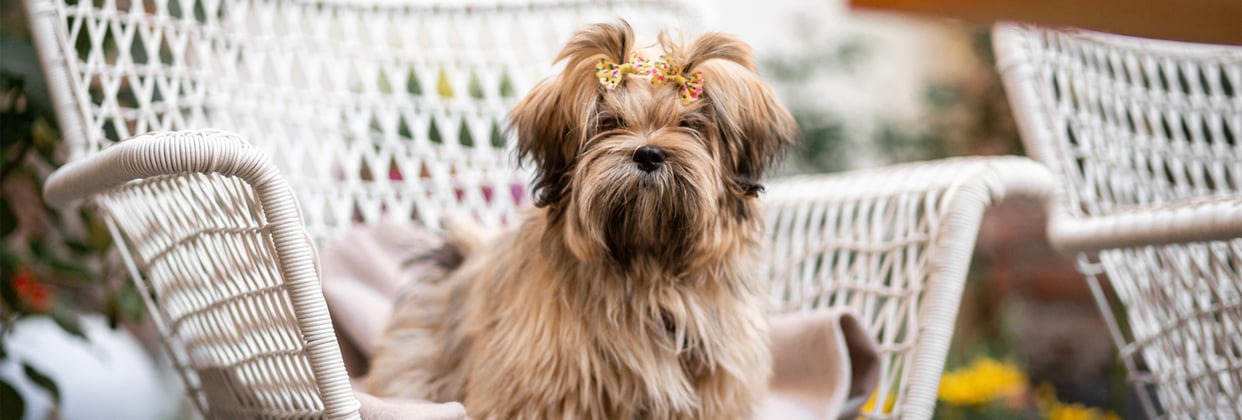

Temperament and behaviour.
Do Lhasa Apsos make good pets?
Yes! Lhasa Apsos are known for their warm, loyal nature. They’re protective, devoted, and often have a charming streak of independence.
As a family dog, they love people but can be slightly wary of new faces until they feel comfortable. Remember, back in Tibet, being watchful was literally their job!
Are Lhasa Apsos good with kids?
Lhasa Apsos can be wonderful with respectful children who understand gentle handling. They adore companionship but also appreciate a bit of personal space.
If the kids are taught how to interact kindly with no roughhousing, these proud pups usually do very well.
Are Lhasa Apsos good with cats?
Many Lhasas can live peacefully alongside cats, particularly if introduced early. They’re not as high-energy as some terrier breeds, which can help the settling-in process with feline family members.
Still, each individual dog is different, so always supervise new introductions.
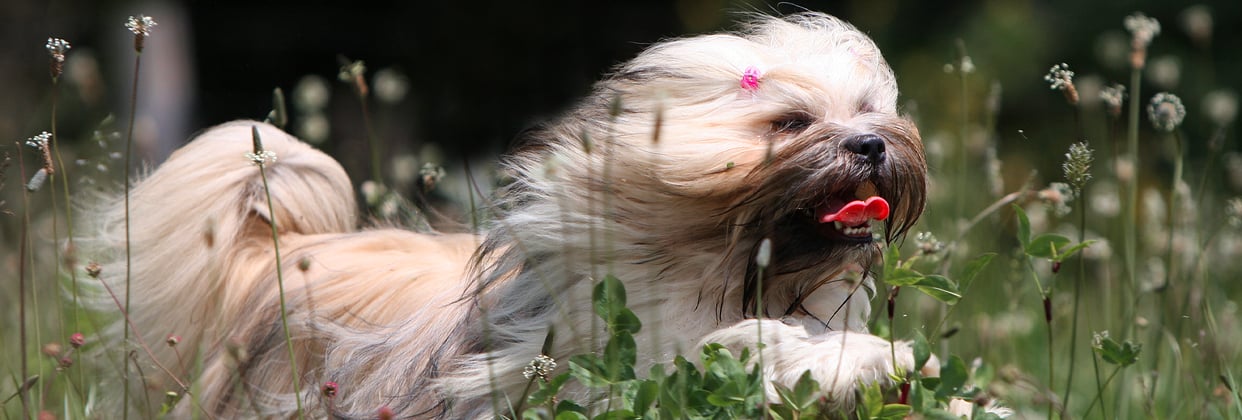

Do Lhasa Apsos suffer from separation anxiety?
They can. Lhasa Apsos become attached to their families and may feel stressed if left alone for long stretches. Gradual training, lots of praise, and puzzle toys can help keep them engaged while you’re out.
Can Lhasa Apsos be left alone?
Short absences are generally okay if they have a comfy spot to relax, fresh water, and a favourite toy. But best not to leave them longer than 4-6 hours.
They thrive on companionship, so a dog-sitter or bringing them along to pet-friendly places is often the better plan.
Can Lhasa Apsos live in apartments?
Definitely. Their small dog stature and moderate energy needs make them a good fit for flats. Just stay on top of their daily walks and mental stimulation.
Do Lhasa Apsos bark a lot?
They can be vocal, particularly if they sense a stranger nearby. Remember, they developed into a prime watchdog.
Early socialisation and positive training methods can help keep excessive barking under control.
Training a Lhasa Apso.
Are Lhasa Apsos smart?
They’re clever, with minds of their own. This can come across as stubbornness if training sessions get repetitive. Keep lessons fun, short, and rewarding. Lhasa Apsos need consistent guidance grounded in kindness and positive reinforcement. A gentle approach works wonders.
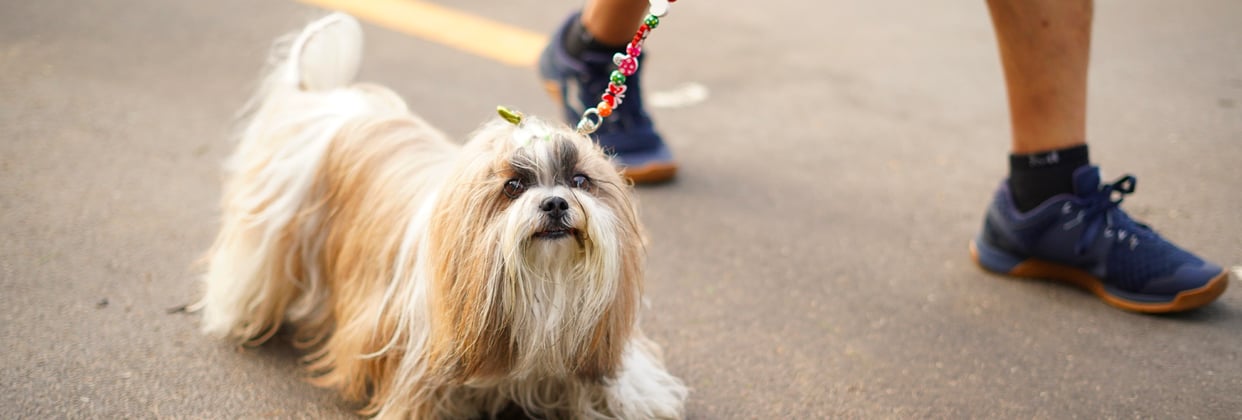

Shedding and grooming.
Lhasa Apsos shed minimally but their long coat requires thorough maintenance to avoid matting.
Daily brushing with the right tools can help prevent tangles. Routine grooming also lets you spot any skin issues or lumps early.
Don’t forget those teeth and gums: daily brushing with a toothbrush and toothpaste made for dogs can help prevent dental disease.
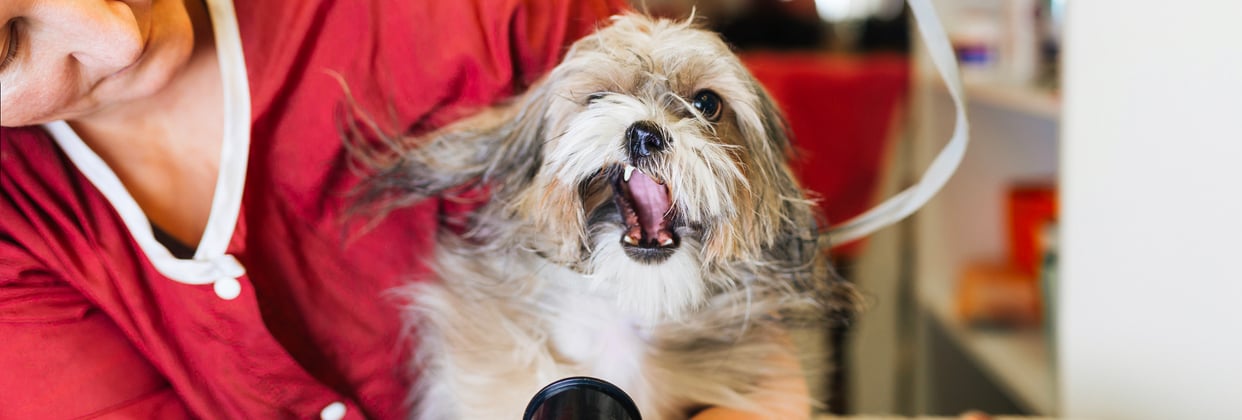

Exercise and mental stimulation.
Though they hail from palaces and monasteries isolated high in the mountains, Lhasa Apsos aren’t avid climbers or marathon runners.
They do best with 30-45 minutes of daily activity, including gentle walks and interactive play. They love mental challenges too so nose-work games like treat hide and seek can keep them busy and happy.
Stay mindful of their flat face, as some may experience breathing problems (part of brachycephalic traits) if overexerted in hot weather.
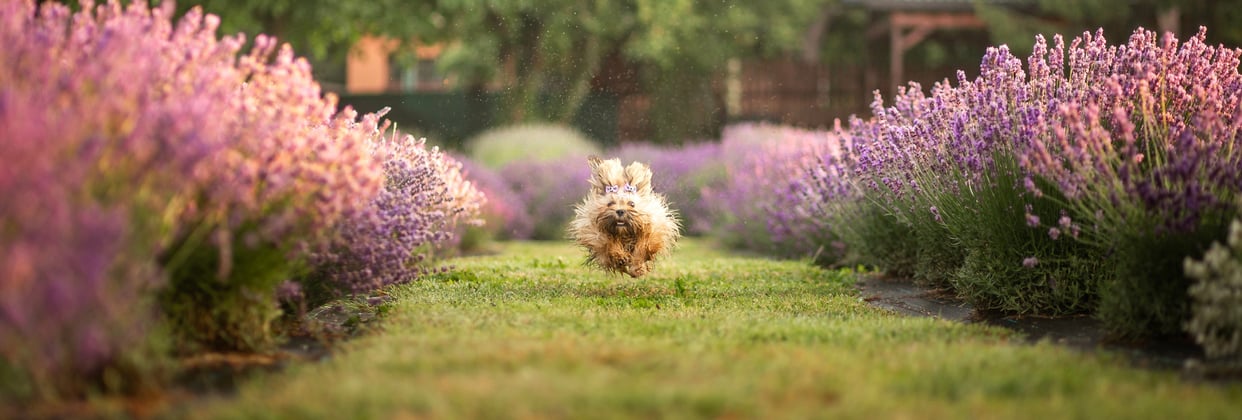

Feeding and nutrition.
With their petite frame, Lhasa Apsos benefit from good-quality small breed dog food. Most adult Lhasa Apsos do well on around ¾ to 1 cup per day, split into two meals.
If you’re unsure, your vet may recommend portions tailored to factors like age, weight, and overall health. Always monitor treats and remember what is best for healthy teeth and bones.
Common health issues in Lhasa Apsos.
Like many breeds, Lhasa Apsos are prone to some potential health problems. Screening with a reputable kennel club breeder helps, but even healthy Lhasa Apsos need regular vet check-ups.
Below is a snapshot of a few conditions they may face:
Note: Costs are approximate and can vary based on location and specific veterinary practices.
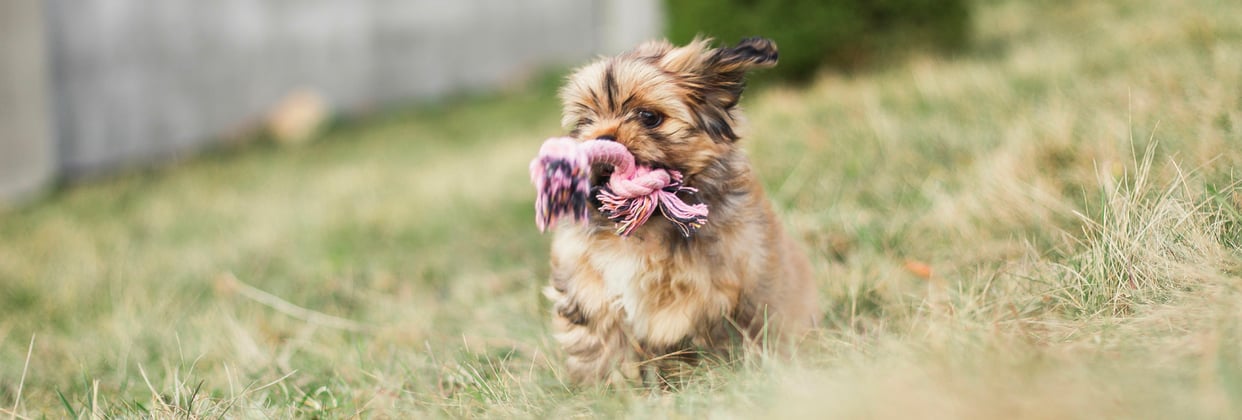

Pet insurance for Lhasa Apsos.
Given their unique build, gorgeous coat, and potential health concerns, it’s vital to protect your Lhasa Apso with coverage designed for breeds like this.
Get peace of mind and keep your dog healthy and happy by checking out Lhasa Apso Pet Insurance.
Routine health checks, vaccinations, and the right policy help ensure that every Lhasa Apso has a safety net if they need veterinary care.
In summary, the Lhasa Apso dog is loyal, spirited, and full of charm. With their storied heritage as sentinels at palaces and monasteries, they still enjoy guarding your home and heart.
A bit of patience in training, a commitment to grooming, and proper veterinary attention will help your Lhasa Terriers live a long, content life by your side.
By making them feel like part of the family, and respecting that regal spirit , you’ll have a devoted friend for many years to come.
